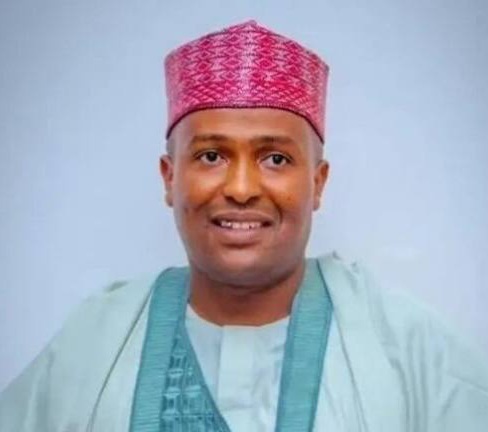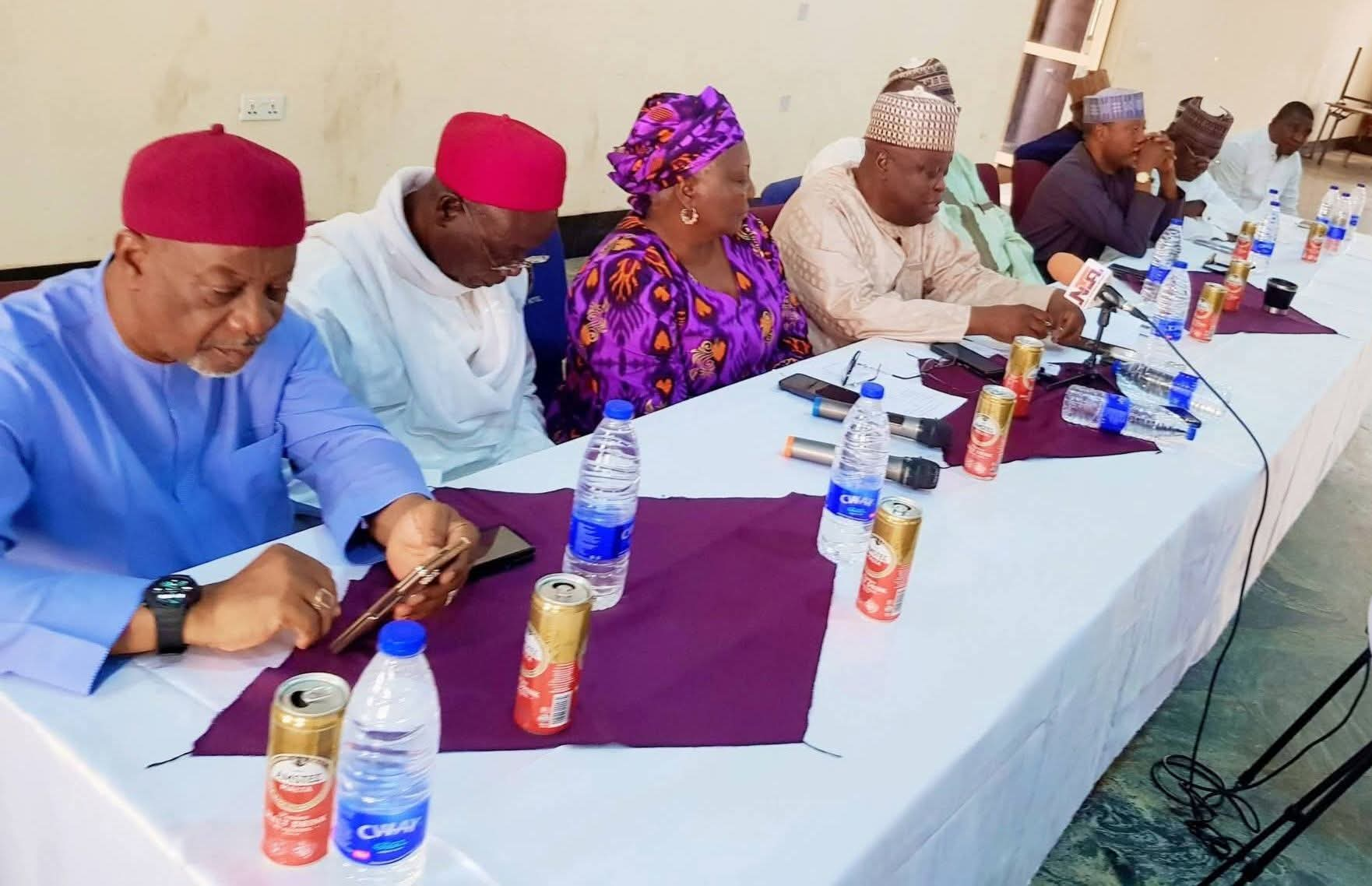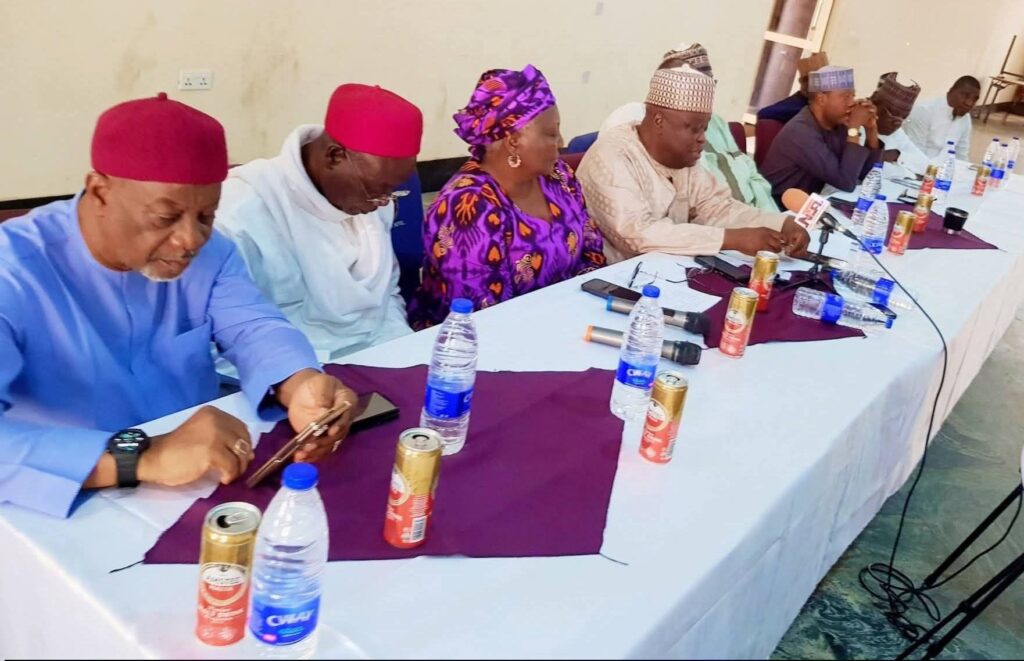News
The Brexit Nightmare ByReuben Abati
What has the United Kingdom just done to itself, its people and the future of its self? It is difficult to fully understand why a country in taking a decision about its future will decide on a false option that seems to negate long-term interests.
And this, just because a total of 17.4 million people out of over 61 million chose to vote against the United Kingdom’s continued membership of the EU. More than 50% of these pro-Brexit voters are actually between the age bracket: 50-70, thus an ageing class of voters has taken a decision to undermine the future of the younger generation.
Pro-EU Prime Minister David Cameron said he was “courageous and optimistic ” when in January 2014, he tried to justify the need for a referendum.
His words then: “ I think the overwhelming majority of the British people say they want to be in Europe but they want some changes to the relationship and they would like to be given a say. It is not something that we should be frightened of. It’s something we should embrace.” Cameron is now a study in political miscalculation and how over- confidence can make a political leader misread the people’s moods and expectations. He has been praised for his “courage” in quickly accepting the people’s verdict and for tendering his resignation, but I guess he won’t possibly be talking about courage. He must be full of regrets for presiding over the United Kingdom’s exit into a nightmare. Britain is better off remaining in the EU. But on June 23, 2016, the people of Great Britain spoke and their verdict has been accepted as the status quo, except a miracle happens and the current petition by the pro-EU protesters results in a second referendum. As things stand, the people have rejected continued membership of the European Union. The implication is that the majority of the people believe that the United Kingdom is better off on its own. What is quite clear is that this British exit (Brexit) is more about the rise of xenophobia, bigotry and isolationism. It is not new. Britain has always looked backward and in-out in the course of its membership of the EU, oscillating between its commitment to a greater Europe and the need to preserve British identity and sovereignty.
The British public mind has been driven in recent years by loud, perpetual carping about too much control from Brussels, and the
need to project Britain first. The ultra nationalists nursed fears about their great country becoming a colony within a EU empire. They are uncomfortable with the apparent globalization of British demographics, turning Britain into a country of many racial colours, with the influx of so many immigrants who are empowered by EU laws to be free citizens of a united Europe. The call for a referendum on this matter has now given the Brexiteers, who jus want their country to be left alone by outsiders, the opportunity they have always wanted. PM Cameron apparently underestimated their resolve. The Leave EU activists campaigned more vigorously, and deployed every possible means including blackmail and sentiments. They had the vibrant support of many political leaders including former London Mayor Borns Johnson, Michael Gove, and fire-eating UKIP leader, Nigel Farage. In the event of an intense campaign that divided the country right down the middle, we witnessed the mainstreaming of xenophobia and bigotry. Labour MP Jo Cox who was murdered by an irate Eurosceptic for her pro-EU stance will be remembered as the symbol of how a straightforward, for or against, political debate turned into hate campaign and a national referendum became an act of terror. There are many lessons to be learnt from this instructively low moment in Britain. What has happened is actually a referendum on the British establishment and the EU. The EU faces a crisis requiring urgent introspection and reform of its processes, if it must continue to serve its purpose. Britain is not the first country to avoid membership of the EU but whereas countries like Switzerland and Norway can hold out on their own, Brexit comes at great cost to the British. At hand is the triumph of emotions over reason, and the triumph of right wing populism. In many countries of Europe and even at the moment in the United States, the ultra-conservative political bloc seems to be in the ascendancy. Questions are being asked about regional integration and globalization. The basis for this is largely the manner in which regional groupings such as the EU disappoint the people. This is made worse by the failure of the leadership elite and sitting governments. When people are not happy with their governments or their circumstances,
they are ready to make any choice that looks like an alternative. Opposition and anti-establishment politicians understand this game too well.
All they need to do is to demonize the establishment, tear the government of the day into pieces, call names and tell the people that the time has come for change. Those who claim that they best know how to save a nation, armed with populist rhetoric in an election time, and have the best support of the people, in the long run stand a better chance of winning. Democracy in that fashion is a play-field of emotions, not facts. It is the same scenario that made Bernie Sanders so popular in the recent Presidential nomination process in the United States, and also led to the emergence of Donald Trump as the presumptive Republican Presidential candidate. Political leaders who don’t want sad outcomes only have to provide good leadership and meet the people’s
expectations. It is also clear that democracy may not produce rational outcomes in so far as it awards triumph on the basis of percentages: in Brexit, the difference is just 4%, 58-42, but the rule of the game is that majority carries the day, and as in most cases, the winner takes it all. But should the economic and political destiny of a people be determined in such formulaic manner?
Brexit has left the United Kingdom in a more divided shape that it was before the referendum. The entire country is in turmoil.
The taste of change doesn’t quite seem so sweet anymore, less than 72 hours after the vote. Young Britons may no longer be able to
move freely across Europe and the experts have predicted rising costs and expectations and greater economic hardship. If Brexit
stands, more than half of the population will be thrown into a winter of discontent, wondering why just about 1.3 million voters
(17.4 million (for), 16.1million (against) should have been allowed to mislead a country. Many Britons will no longer be able to find jobs so easily across Europe. Hyperdemocracy has resulted in British discombobulation. But that is democracy: it includes the people’s right to make mistakes, that is – the right of the simple majority to make mistakes at the expense of the minority, who may have lost the vote due to poor turn out or other matters of logistics. Leadership counts. The truth is that the leadership elite in Britain has also not always being too clear about where Britain should stand in relation to the rest of Europe. Even the pro-EU political leaders do not really object to Britain holding on to its national currency, the Pound, as opposed to the Euro, and Britain opting out of the idea of being a Schengen border. Britain also did not join the European Economic Community until 1973, 16 years late. Two years later, there was an exit referendum similar to this one, won by the pro-Europe campaigners. Nothing forecloses the possibility of another referendum in the not too distant future to reverse the present decision. What has happened isperhaps all correctly British, in the final analysis: a nation yet to come to terms with certain odern realities, caught between nostalgia and the future. This is precisely what the copycat plebiscites should understand, particularly in Africa where some commentators have been saying that some African countries on account of Brexit may begin to raise question about the relevance of the African Union. The AU is modeled after the EU and it receives substantial funding support from it, but it has not been as remotely relevant in addressing the people’s expectations. In my opinion, there is nothing to fear in terms of a copycat effect in Africa; most Africans are
indifferent about the AU anyway, they are not even aware of its existence. But as most development aid received by African countries come from the EU, this may be negatively affected with the exit of a major country like Britain, and a post- EU Britain may also be compelled to adjust its trade relations, immigration rules, and development support for countries in Africa. This, I think, is all there is to it at this end. Closer home, the more strident call is for a referendum on the Nigerian union. In the last few days, I have for example, seen a strange Nigerian invention called “Biafrexit”. This must be a joke, symbolically thrown up by those who must know that no Nigerian government will allow such a vote. The Brexit vote was not about disintegration, even if Scotland is now insisting on its independent right to be part of the EU; rather the vote was more about national and economic identity. Nigeria is
still at the level of debates: we can hold as many conferences as we like, adjust the Constitution at mutually agreed terms, but a
referendum that could lead to the dissolution of this country is not what we need, and it is certainly not the lesson from Brexit.
News
Kano Assembly Speaker Jibril Falgore Leads 21 Lawmakers Out of NNPP After Governor’s Exit

The Speaker of Kano State House of Assembly, Jibril Ismail Falgore, alongside 21 other legislators, has formally resigned from the New Nigeria People’s Party following Governor Abba Kabir Yusuf’s departure from the political platform.
The mass resignation, announced on Saturday, includes the Deputy Speaker, Muhammad Bello Butu-Butu, Majority Leader Lawan Hussain, and other principal officers of the state legislature, signaling near-total collapse of NNPP structures in the assembly.
According to a statement released by the Chief Press Secretary to the Assembly, Kamaluddeen Sani Shawai, the lawmakers declared total support for Governor Yusuf, who had exited the party just 24 hours earlier alongside eight federal lawmakers and all 44 local government chairmen in the state.
The defecting legislators include Deputy Majority Leader Garba Shehu Fammar, Chief Whip Muddasir Ibrahim Zawachiki, Majority Whip Zakariyya Abdullahi Nuhu, and lawmakers from constituencies across Kano including Ajingi, Albasu, Bagwai/Shanono, Bebeji, Bunkure, Dawakin Kudu, Fagge, Gabasawa, Garko, Gwale and Karaye.
The statement emphasized that the Kano State House of Assembly had verified and authenticated the complete list of defecting lawmakers to properly inform the public and clarify their political position following the governor’s resignation from NNPP.
The legislators reaffirmed their unwavering commitment and loyalty to Governor Yusuf’s administration despite the political realignment, pledging to continue supporting the policies and programmes being implemented across the state.
Governor Yusuf had communicated his decision to leave NNPP in a letter addressed to the party chairman of Diso-Chiranchi Ward in Gwale Local Government Area, effective January 23, 2026, citing persistent internal disputes and legal challenges that have undermined party stability.
In the resignation letter, the governor expressed appreciation to NNPP for the platform and support extended to him since joining in 2022, while acknowledging that deepening internal divisions had created an untenable situation requiring decisive action.
The NNPP Secretary of Diso-Chiranchi Ward, Kabiru Zubairu, acknowledged receipt of the governor’s resignation while commending his achievements in infrastructure development, urban renewal, healthcare delivery, education and economic empowerment during his time in office.
Zubairu admitted the existence of lingering internal challenges within the party and stated that NNPP had no option but to accept the resignation, describing Governor Yusuf as one of the most outstanding governors produced by the political platform.
The wave of defections marks a dramatic political shift in Kano State, where NNPP had dominated since the 2023 elections under the influence of Senator Rabiu Musa Kwankwaso and the Kwankwasiyya movement.
NNPP national officials have condemned the development, labeling it a betrayal of the sacred trust given by Kano voters. National Publicity Secretary Ladipo Johnson dismissed claims of irredeemable party crisis as baseless, while Kwankwaso declared he is not for sale and would not compromise his principles.
News
Singer TIME Drags Georgina Onuoha Over Comment on Davido’s Father’s Reaction to Paternity Saga

Nigerian singer, TIME has publicly called out Nollywood actress Georgina Onuoha following her criticism of Davido’s father, Dr. Adedeji Adeleke, over his reaction to the ongoing paternity controversy involving the Afrobeats superstar.
The drama began after Georgina Onuoha questioned why Davido’s father appeared to defend his son amid allegations that he welcomed a child with a woman identified as Anu Adeleye. In a post shared online, the actress described Davido as “irresponsible,” sparking mixed reactions across social media.
Reacting to her comment, TIME took to X (formerly Twitter) to drag the actress, accusing her of ignoring key details surrounding the case. He referenced statements made by Davido, noting that he had never met the said lady before the first DNA test, and questioned why people were not discussing other individuals mentioned in the saga.
“Madam Georgina, did you hear the part Davina said she’d never met her prior to the first DNA test? Why are y’all not talking about the bank official the girl mentioned to Dr. Sikiru Adeleke?” TIME wrote.
According to reports, Aanu’s mother has been identified as Grace Ayotomide Labinjoh, who has consistently maintained that Davido is her daughter’s biological father despite the singer and his family denying the claim.
TIME’s remarks triggered a fresh wave of debate online, with some social media users backing him for defending Davido’s family, while others accused him of unnecessarily attacking Georgina Onuoha.
As the paternity saga continues to trend, the clash between TIME and Georgina Onuoha has added another layer of controversy, keeping Davido and his family at the center of public discourse.





News
Nasarawa ADC Suspends State Chairman Over Alleged Anti-Party Activities, Sets Up Disciplinary Committee

The African Democratic Congress (ADC) in Nasarawa State has suspended its State Chairman, Godwin Alaku Williams, over alleged involvement in anti-party activities.
The suspension was approved by the party’s Transitional Leadership Team (TLT) following a petition accusing Williams of actions deemed harmful to the unity and progress of the party in the state.
The decision was taken at a TLT meeting held on Wednesday at Otunsha Hotel, Keffi, and presided over by the party leader, Chief John Michael Abdul.
In a statement issued by the party’s spokesperson, Comrade Idris Ojoko, the suspension will last for 14 days, pending investigation and the outcome of proceedings by a disciplinary committee constituted by the TLT.
Ojoko also announced the appointment of Barrister Paul Magaji Ajeh, formerly the State Secretary, as Acting State Chairman, while Umar A. Babayaro has been named Acting Secretary.
According to the statement, the allegations against Williams include his alleged refusal to recognise the party’s National Working Committee (NWC) led by Senator David Mark, and his failure to integrate coalition members into the ADC party structure in Nasarawa State.
Other accusations include allegedly reporting some party leaders to the Independent National Electoral Commission (INEC), the Department of State Services (DSS), and the Nigeria Police, describing them as impostors.
Williams is also accused of constituting parallel party organs at various levels within the state, interfering with the establishment of party offices at the state, local government, and ward levels contrary to NWC directives, and disrupting the ongoing membership registration and revalidation exercise.
Meanwhile, Ojoko announced the formation of a disciplinary committee chaired by Barrister Hassan Yakubu. Other members include Amina Zanwa, Mamman Sunday, and Yunus Abdullahi Sidi, with Gaza Mark Auta serving as Secretary.

-

 News2 years ago
News2 years agoHardship: We Plan To Establish A National Commodity Board To Crash Food Prices – VP Shettima
-
News8 years ago
Blog Reader; Samson Osagiede Celebrates Fiancè Benedicta Daniels’s Birthday With Sweet Words
-
Home9 years ago
News Channel claims Donald Trump is an orphan from Pakistan,share alleged childhood photo
-
Home9 years ago
Another $175m Found in Patience Jonathan’s wife’s firm’s Bank Account
-
Home9 years ago
Oil Spillage: House of Reps Member Shares Photos of the Water her Constituents Drink .
-
Home9 years ago
Zara Buhari & Ahmed Indimi’s Wedding Access Card
-

 Sport7 years ago
Sport7 years agoModric, Marta Wins 2018 FIFA Best Player Of The Year Awards ⚽️
-
News8 years ago
The Best Video You’ve Seen Today?

